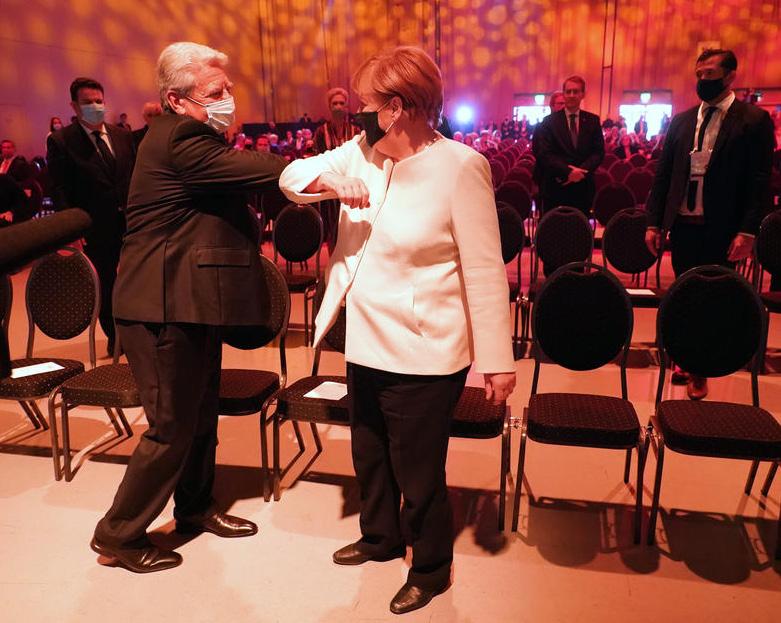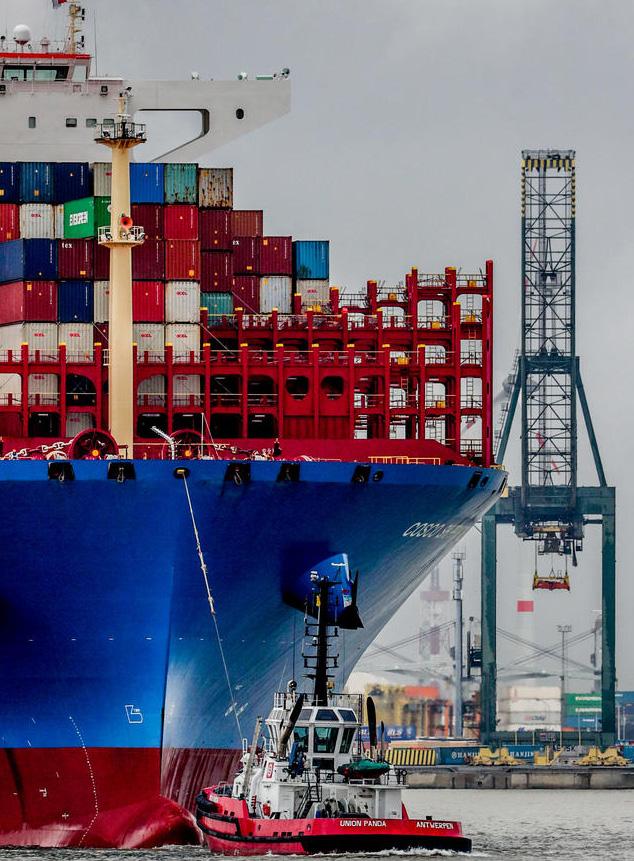
3 minute read
Cover story
CorporateDispatchPro
Cover Story
Germany turns 30
Futuristic architecture, a colourful subculture, eclectic cuisine, an intense party scene – Berlin is truly one of the open capitals of the world. Walking though the vibrant streets today is difficult to picture the high, concrete wall slicing through the city until just three decades ago.
The fall of the Berlin Wall in November 1989 was a momentous event, not only for the German families that had been torn apart since the 1960s, but for the international community too. It took another year until East Germany officially joined the Federal Republic on October 3, 1990, giving birth to the new city-state of Berlin in the meantime.
The reunification of Germany represented the fading out of the Cold War and generated a new optimism for multilateralism, which until that moment had been held back by the global polarisation of the Eastern Bloc and the Western Bloc.
At the stroke of midnight of that historical day, the new Germany suddenly became the most populous nation in Europe and its biggest economy. Neighbouring Italy and France are reported to have raised concerns over this reallocation of power in the region while British Prime Minister Margaret Thatcher was strongly opposed to the whole idea of reunification. But an undivided Germany was, by then, an inevitable social and political process.
The signing of the reunification treaty led to a long period of internal stability and prosperity, mostly driven by a grand coalition between the social democratic SPD and the Christian democratic CDU. Critics cropping up from the left and the right flanks, however,

are less keen on the effects of the long-standing arrangement, which they see as dangerous ‘neoliberal triumphalism’ that – depending on the political standpoint – either flattens national identity or eradicates social solidarity.
Although the unified Germany swiftly emerged as a trading giant on the world stage, the economic inequities at home have not yet been completely addressed. The Annual Report on the Status of German Unity this year showed that the economic output of the former Eastern states lags the rest of the country by a third. Incomes in these states are an average 10 percent lower than then national average whereas the unemployment rates remain disproportionately higher.
The German commissioner for the new federal states, Marco Wanderwitz, acknowledges that there is still work to be done to correct enduring imbalances, but is hopeful that a new generation of industry settling in what used to be the GDR will help to fulfil the promises of reunification. In the 30 years since unification, the country has grown into the economic engine of the EU and a determined advocate for the European integration. Not only was the new-look Germany an early champion of the

CorporateDispatchPro


euro currency, but in the wake of the pandemic, the Bundesregierung put its weight firmly behind the so-called coronabonds, taking the EU a stop closer towards a European debt union.
Today, Berlin holds enormous sway in the political direction of Europe, and yet, Germans are more likely to consider themselves as European citizens than the populations of other member states.
Germany’s impressive journey from a partitioned country controlled by superpowers to a key G7 player is brilliantly personified in Chancellor Angela Merkel, the modest scientist from the former German Democratic Republic who rose into one of the most respected statespersons in the world, stepping in to fill the vacuum of global leadership on multiple occasions including the Covid-19 crisis.
The reunification is clearly an ongoing project that requires further structural transformations. But the extraordinary achievements attained in these first 30 years are reason enough to celebrate this important milestone as an international success.





